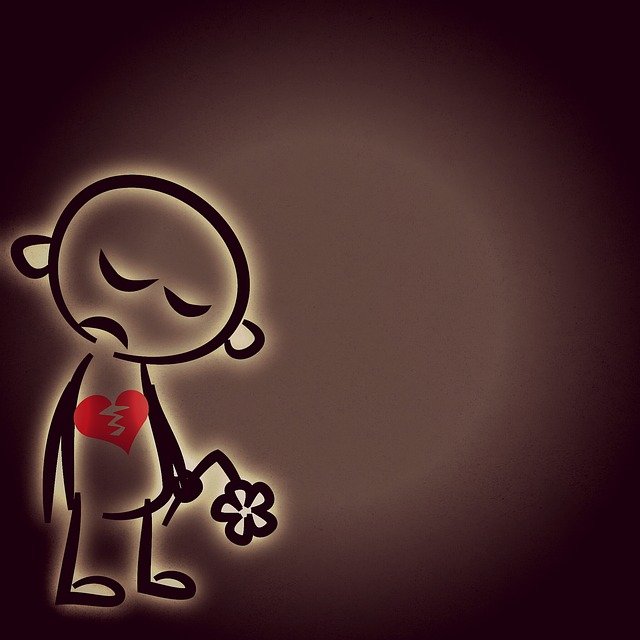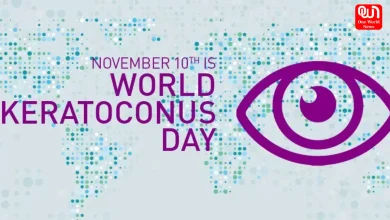WHEN YOUR HEART’S BROKEN… (LITERALLY)

We come across the term, ‘it breaks my heart’, numerous times in our lives. This phrase is not just an expression in the void pertained to only films and novels; it’s indeed a true physical state that our pumping organ, the heart, goes through. But have no fears; we are going to tell you all about this syndrome, and more!
The ‘Broken Heart Syndrome’, scientifically known as ‘Takotsubo Cardiomyopathy’ and more commonly known as ‘Stress Induced Syndrome’ is a phase that can trigger ailments as problematic as an acute heart failure, ventricular rupture, etc.
At times, we go through a feeling which puts us in stress, anxiety or tension and there seems to be no way out until either the problem is sorted out or the inescapable time heals it. More often than not, the birth-giver of most of our worries is usually with regard to death of a beloved, an emotional trauma, an unexpected break up that has no patch up in the future or simply because there is no source of happiness around.
When we constantly put our heart under such a pressure, it falls apart; the tendons and tiny muscles break off and the organ starts getting weaker and weaker with each passing day. The sudden thrust of pain we feel in the middle of our chests is not due to mere emotions pouring out; it’s an issue that needs to paid heed to. Read on to find out how to combat it!
We got in touch with one of the leading cardiologists in the capital, Dr. Atul Mathur and got to know more about how it all started. But there’s always a silver lining folks and Dr. Atul joined us to show you all just that.

Dr. Atul said, “Broken Heart Syndrome or Takotsubo cardiomyopathy (TCM) is a transient cardiac syndrome that involves left ventricular (LV) apical akinesis (thinning of the LV apex) and mimics acute coronary syndrome. It was first described in Japan in 1990.”
“Sometimes, when people are in a lot of stress, a stress-induced catecholamine is released which intoxicates and stuns the myocardium (middle layers of the heart’s walls). The most common presenting symptoms are chest pain and dyspnea (difficult breathing), although palpitations, nausea, vomiting and rarely cardiogenic shock have been reported. Also, a significant emotional or physical stressor typically precedes the development of the TCM. Stressors can include learning of a death of a loved one, bad financial news, legal problems, natural disasters, motor vehicle collisions, severity of a chronic medical illness, a newly diagnosed, significant medical condition, an intensive care unit stay or the use of or withdrawal from illicit drugs.”, said the doctor about the syndrome’s probable causes, signs and symptoms.
Talking about the kind of problems his patients have come up with having signs of TCM, he said, “Patients often present with chest pain where they have elevated levels of cardiac enzymes in their blood consistent with a myocardial infarction. I have also seen a few patients that have seen a coronary angiography.”

ONE OF INDIA’S LEADING CARDIOLOGISTS, Dr. ATUL MATHUR WAS VERY GENEROUS IN SHARING EVERY DETAIL WE NEEDED.
It’s difficult for a person to find out on their own if they have TCM as it has to be evaluated by a doctor. The diagnosis and treatment, as explained by Dr. Atul, requires a patient’s admission to the appropriate cardiology service. Treatment options are largely empirical and supportive; however, when hemodynamic (flow of blood in blood vessels) permits, beta blockers (highly prescribed classes of drugs) seem to be helpful. Also, serial imaging studies may be necessary and some require anticoagulation (hindering the clotting of blood by treatment).
To manage stress and hypertension that goes inside a person, doctors suggest intake of beta blockers and stress reducing techniques like appreciating interests and distracting the mind by travelling to some place far or taking a walk with nature but mostly, having faith and patience.
When something devastating happens, it’s mostly irreparable and can’t be reversed. Though it’s not a preaching for our readers but a life with a jolly heart is much more marvellous than with a broken one held together with numerous scotch tapes. Putting your heart into pain could risk your life and stop you from making some beautiful moments. So, next time you have a heart-break, think about it!







